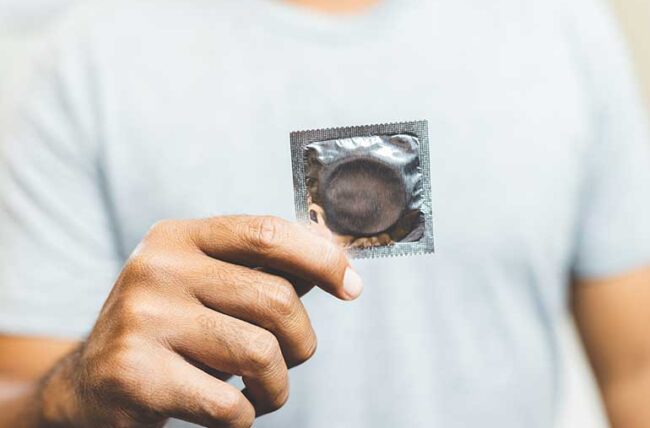It’s exciting to decide whether or not you want to grow your family. You may worry if the test results are always negative.
It’s a question many people face. According to the National Institutes of Health, 9% of men (and people who were born male) and those assigned as such by their parents (AMAB), experience fertility problems.
decreased fertilty in men and women AMAB is often associated with lower testosterone levels. This condition is also known as “low T.”
The likelihood is what’s important. You and your partner can still conceive even if you have low T. You can increase your chances.
Kevin Pantalone, DO is an endocrinologist who specializes in low testosterone and fertility.
Testosterone and fertility
A single ejaculation in people with testosterone levels within the normal range can contain up to 15 million sperms per milliliter. Your sperm count could be low if your testosterone levels are too low. This will decrease your chances of conceiving.
But let’s go micro for a moment. Here’s a short explanation of how sperm is made:
- The pituitary (a part in your brain that controls hormone production) produces two hormones, follicle stimulating hormone (FSH), and luteinizing hormonal (LH).
- LH signals your testes that they should make testosterone.
- FSH and testosterone then work together to produce sperm.
Dr. Pantalone states that you need a lotof testes testosterone to produce sperm. If you have low testosterone levels, you may get stuck in step 2 and end up creating less sperm.
This is the main issue we see with men in relation to low testosterone and fertility. Low testosterone results in a lower sperm number. It doesn’t mean that you won’t be able to conceive but it will decrease your chances,” Dr. Pantalone says.
Dr. Pantalone also says that low testosterone can affect your sexual functions. Low T can cause erectile and low libido, which will lower your chances of conception.
Testosterone Therapy and Fertility
You need testosterone therapy if you have low T.
Actually, no. Although it may seem counterintuitive, testosterone therapy can actually prevent you from producing sperm.
Dr. Pantalone says that testosterone therapy increases testosterone circulating in the blood but not in the testicles where it is needed to produce sperm. “Testosterone therapy can actually reduce your sperm count further. It is not recommended to people who are trying to start a new family.”
Consider it as a supply and demand situation. Your body will not produce any more testosterone in your testicles if you increase the testosterone levels through creams, patches, pills or injections. It thinks that it already has enough testosterone. This means that the testosterone levels in your testicles, where they are important for sperm development, will remain low.
How to increase sperm counts
What will increase your sperm counts if hormone therapy doesn’t?
There are many myths surrounding male fertility. (No, you do not have to give up your tighty-whities). It’s important to take care of your health in order to increase your testosterone levels.
The following are proven strategies for increasing testosterone and sperm production:
- Manage chronic illness through diet, exercise, and other lifestyle modifications.
- Injections of Human Chorionic Gonadotropin (HCG). is a hormone that helps your testes to increase testosterone within your testicles, and improves sperm production.
- Not smoking.
- Do not use illegal drugs
- Alcohol consumption should be limited.
When should you consult a fertility specialist
Dr. Pantalone advises that if you are aware of low testosterone or you and your partner tried to conceive without success for 6 months to 1 year, you should visit a fertility specialist .
A fertility specialist will test you and/or your partner to determine if there are any fertility problems and can recommend ways to improve your chances of having a family. You can also talk to them about intrauterine fertilization (IVF), and intrauterine sperm insemination. Dr. Pantalone believes it is important that both you and your partner undergo evaluations when investigating the causes of infertility.
It can be painful to live with reduced fertility. Many people with fertility problems report feeling depressed or inadequate. Talking with a licensed professional about mental health, and finding others who have experienced the same thing can be helpful. You are not alone. There is hope. Ask your doctor about support groups and therapy for infertile couples.























